.jpg)
August 2020
National Veterinary Scholars Symposium Virtual, Real Success

After the COVID-19 pandemic forced the cancellation of the in-person 2020 National Veterinary Scholars Symposium (NVSS) scheduled for San Diego in July, the AAVMC and conference sponsors quickly retooled to present the important meeting as a virtual experience.
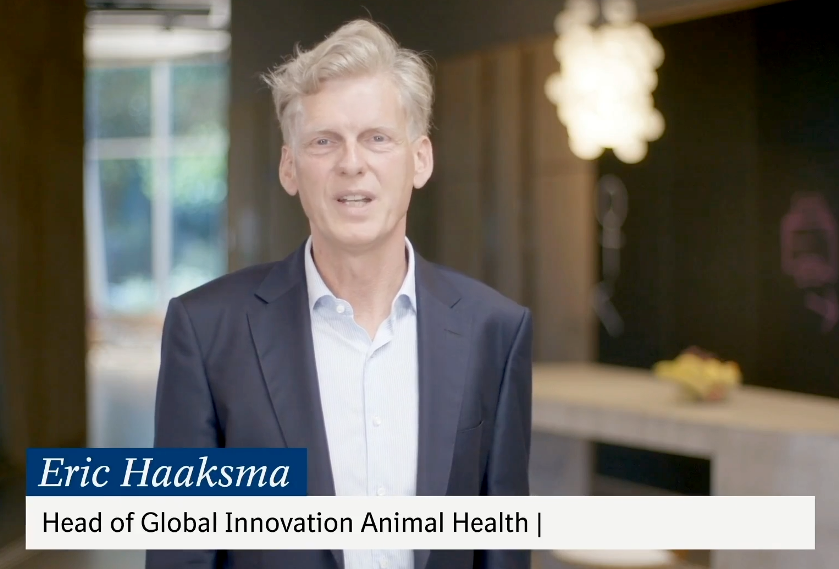 With support from Boehringer Ingelheim Animal Health, the AAVMC presented the Veterinary Summer Scholars Symposium (VSSS) August 4-6, 2020 and it was a resounding success. This year’s theme was “Disruptive Innovation” and the meeting featured student research presentations from across the
spectrum of biomedical science as well as three major keynote
presentations focused on COVID-19.
With support from Boehringer Ingelheim Animal Health, the AAVMC presented the Veterinary Summer Scholars Symposium (VSSS) August 4-6, 2020 and it was a resounding success. This year’s theme was “Disruptive Innovation” and the meeting featured student research presentations from across the
spectrum of biomedical science as well as three major keynote
presentations focused on COVID-19.
About 770 students, faculty mentors and others registered for the event, which annually highlights the essential role of scientific research in veterinary medicine, provides veterinary students with valuable first-hand experience in conducting and presenting research, and highlights the opportunity to pursue careers in biomedical research. The conference included 45 student poster sessions over the three-day event, which were made possible by 30 faculty volunteers representing 14 different institutions.
During welcoming remarks, AAVMC CEO Dr. Andrew T. Maccabe stressed the value of gaining hands-on experience and familiarity with the scientific method that participating students acquired through their summer research programs.
“Nobody expects that all of you are going to pursue careers in research,” he said. “But having gone through this program every one of you now has a better understanding of hypothesis-driven research and the biomedical research enterprise.”
“If veterinarians fail to embrace reason and science, if we let our biases influence patient care, we contribute to an environment in which important decisions are based on emotion and intuition, not evidence,” he continued. “This undermines the basis of veterinary medicine and weakens our profession.”
Maccabe concluded his remarks with some advice for the students. “Be curious, not complacent, be skeptical but not cynical,” he said, “And keep on wondering because the world is a wonderful place and you’re about to embark upon a wonderful career.”
Students participating in the program conduct a hypothesis-driven research project developed jointly by the student scholar and faculty mentor which is typically conducted over an 8-12 week period during the summer. The results are then shared in the end-of-summer research symposium.
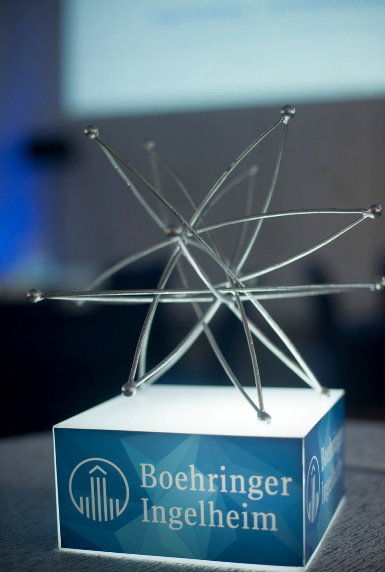 “The Boehringer Ingelheim Veterinary Scholars Program and end-of-summer Symposium provide students with real-world exposure to research, many new collaborative relationships with mentors and peers, and the chance to take their intellectual curiosity a step further,” said Caroline Belmont, Head of US Animal Health Innovation for Boehringer Ingelheim.
“The Boehringer Ingelheim Veterinary Scholars Program and end-of-summer Symposium provide students with real-world exposure to research, many new collaborative relationships with mentors and peers, and the chance to take their intellectual curiosity a step further,” said Caroline Belmont, Head of US Animal Health Innovation for Boehringer Ingelheim.
“Through great collaboration and the agility of the participating veterinary schools, students and supporting organizations, we successfully recreated this experience in a virtual manner this year, in the face of great uncertainty and many logistical challenges,” Belmont continued. “We hope that this year’s students walk away from this experience with greater resilience, confidence and inspiration to tackle the many remaining challenges we must face in animal and human health.”
Over 500 student posters featured topics that ranged from wildlife conservation and microbiology to timely subjects such as virology and COVID-19 pandemic access to care. Students presented their research findings utilizing a digital scientific poster platform which allowed them to record their verbal presentation, add features such as embedded video into their digital poster and interact directly with interested attendees. Topic-based poster sessions also allowed students to present live and field questions about their research. See a complete list of abstracts here.
Three distinguished keynote speakers presented remarks during the virtual symposium.
- Dr. Jonna Mazet, professor of epidemiology and disease ecology in the One Health Institute at the UC Davis School of Veterinary Medicine spoke on “Using One Health to Provide a COVID Pandemic Blueprint for Hope.” Dr. Mazet’s work focuses on global health problem solving for emerging infectious diseases and conservation challenges.
- Dr. Angela Bosco-Lauth, assistant professor in the Department of Biomedical Sciences at Colorado State University, spoke on “SARS-CoV-2 Host Range Studies.” Dr. Bosco-Lauth’s work focuses on zoonotic infectious diseases with an emphasis on disease pathogenesis, ecology and transmission.
- Dr. Erin Sorrell, a member of the Center for Global Health Science & Security and an assistant professor in the Department of Microbiology and Immunology at Georgetown University spoke on “The Importance of Veterinarians in Research and the Response to Emerging Infectious Diseases.”
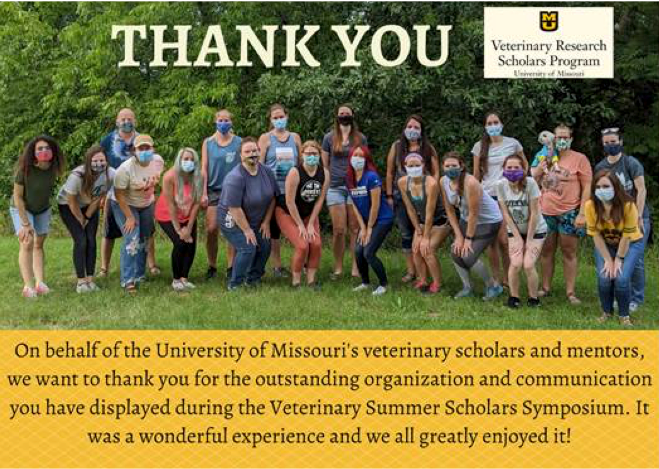 The rapid pivot required to present a virtual conference as a result of the pandemic was a perfect example of the innovation and agility required to advance science, pointed out Boehringer Ingelheim’s Head of Global Innovation Animal Health Dr. Eric Haaksma in his welcoming remarks. “In this symposium we bring together the researchers from academia, government and industry, and we believe that that is the key to future disruptive innovation.”
The rapid pivot required to present a virtual conference as a result of the pandemic was a perfect example of the innovation and agility required to advance science, pointed out Boehringer Ingelheim’s Head of Global Innovation Animal Health Dr. Eric Haaksma in his welcoming remarks. “In this symposium we bring together the researchers from academia, government and industry, and we believe that that is the key to future disruptive innovation.”
The decision to cancel the existing in-person meeting in San Diego and convert to an online format was made in April, according to AAVMC Director for Professional Development Caroline Cantner. The decision to cancel the in-person meeting and offer a virtual opportunity was a major undertaking that required a great deal of effort and planning on behalf of the conference organizers and sponsors, including the University of California San Diego and Western University of Health Sciences, the host institutions for the original in-person conference. Cantner also expressed appreciation to the American Veterinary Medical Association (AVMA) for assisting with the abstract process and abstract booklet.
“While we initially did not know how many students would be able to participate, it is overwhelming to see the number of students and programs who joined us for the virtual symposium,” said Cantner. “The success of this event speaks to the critical importance of veterinary medical research and the commitment of the veterinary research community to the next generation of researchers.”
The next NVSS will be hosted by Iowa State University in 2021. Questions about these events can be sent to Dr. Cantner at ccantner@aavmc.org.
CBVE Working Group Becomes an Official AAVMC Council
 The AAVMC’s Competency-based Veterinary Education (CBVE) Working Group is transitioning to an official council that will be semi-autonomous within the AAVMC and report to the Board of Directors. The CBVE group will now be known as the AAVMC Council on Outcomes-based Veterinary Education (COVE). The council’s goal is to enhance the overall adoption and implementation of CBVE in worldwide veterinary medical educational programs.
The AAVMC’s Competency-based Veterinary Education (CBVE) Working Group is transitioning to an official council that will be semi-autonomous within the AAVMC and report to the Board of Directors. The CBVE group will now be known as the AAVMC Council on Outcomes-based Veterinary Education (COVE). The council’s goal is to enhance the overall adoption and implementation of CBVE in worldwide veterinary medical educational programs.
“This move is a recognition of the pervasive and enduring nature of their work,” said AAVMC CEO Dr. Andrew T. Maccabe, noting that AAVMC working groups and task forces are generally time-limited groups that either complete their work or transition into a formal and long-term component of the organization. “The CBVE project has evolved into a paradigm-changing model that is improving academic veterinary medicine around the world and we look forward to many more contributions in the future.”
COVE will work to implement outcomes-based veterinary education across the learning continuum, conduct research on questions of importance related to competency-based education, and advocate for the integration of CBVE with key stakeholders. It will also provide a mechanism for extending the work of the initial group into three, expanded-member, volunteer working groups.
CBVE was created in 2015 and charged with developing a modern, outcomes-based competency framework for veterinary education and clinical assessment. The project was one of the most substantial pedagogical initiatives ever undertaken by the AAVMC.
CBVE is structured upon the belief that the practice of veterinary medicine requires the simultaneous integration of multiple competencies that allow veterinary professionals to perform day-to-day activities in the workplace.
Since its founding, the CBVE working group developed a competency framework, core entrustable professional activities (EPAs), and milestones to assess progress. The CBVE framework is based upon a variety of resources, including the nine clinical competencies established by the Council on Education (COE). The framework outlines “clinical reasoning and decision making” as a representation of the skills necessary to think critically in any aspect of the veterinary profession, no matter the career choice.
Entrustable Professional Activities (EPAs) provide the groundwork for the future development of assessment tools and a structure to provide feedback that guides learners as they work towards independent practice via use of milestones.
Moving forward, COVE will build upon the working group’s foundation, helping veterinary medical colleges implement competency-based education in any way they see fit, whether they are in the process of refining or completely redesigning their professional curricula.
The COVE will be co-chaired by Drs. Jennie Hodgson of the Virginia-Maryland College of Veterinary Medicine and Kristin Chaney of the Texas A&M College of Veterinary Medicine and Biomedical Sciences.
COVE members include Dr. Jared Danielson of the Iowa State University College of Veterinary Medicine, Dr. Jan Ilkiw of the University of California – Davis School of Veterinary Medicine, Dr. Susan Matthew of the Washington State University College of Veterinary Medicine, Dr. Stephen May of the Royal Veterinary College, Dr. Laura Molgaard of the University of Minnesota College of Veterinary Medicine, Dr. Emma Read of The Ohio State University, and Dr. Kathy Salisbury of the Purdue University College of Veterinary Medicine.
COVE will be supported by Jody Frost, educational consultant, and Ted Mashima, Senior Director for Academic and Research Affairs. More than 30 individuals have been recruited to serve on working groups associated with COVE, according to Mashima.
Strategic Plan Implementation on Track, Mapping Progress
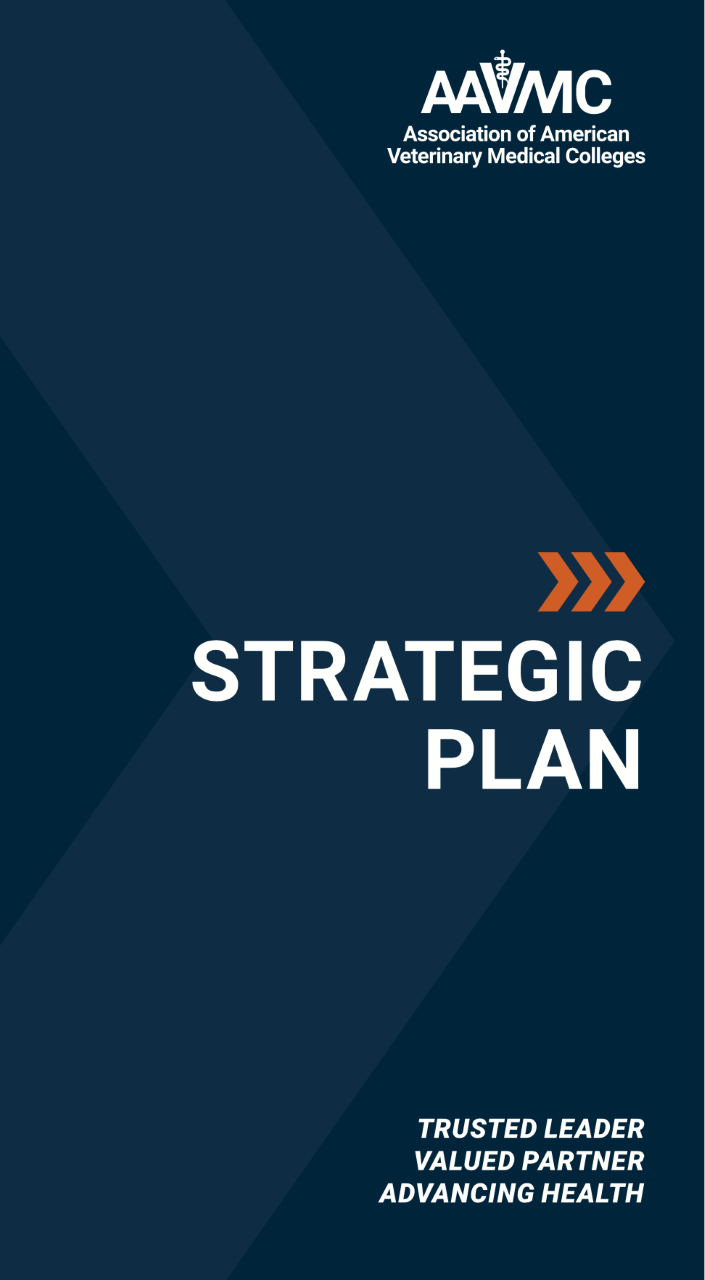 Implementation of the AAVMC’s new strategic plan continues on schedule, according to AAVMC CEO Dr. Andrew T. Maccabe.
Implementation of the AAVMC’s new strategic plan continues on schedule, according to AAVMC CEO Dr. Andrew T. Maccabe.
The plan, introduced in March 2020, recasts the AAVMC’s vision, mission, values and goals in a way that positions the organization for success in the rapidly changing landscape of modern veterinary medicine.
In order to ensure performance and accountability, an array of metrics and timelines are imbedded in a series of objectives designed to achieve the five overarching goals and strategies articulated in the plan.
During a meeting of the Board of Directors held in late July, AAVMC Senior Director for Institutional Research and Diversity Dr. Lisa Greenhill made a presentation regarding metrics being used to measure progress against the performance goals outlined in the plan.
FFAR Announces 2020 Veterinary Student Research Fellowships
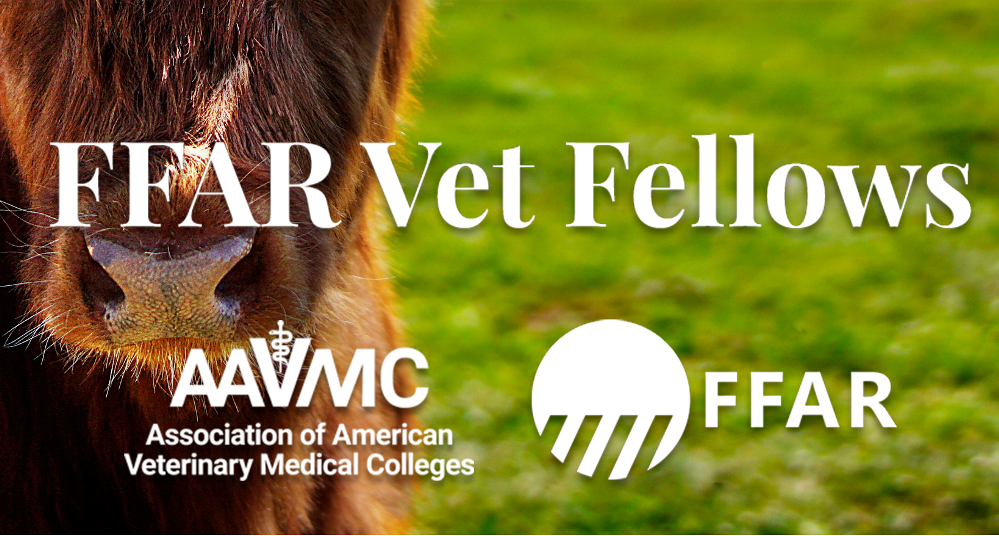
Note: This story provided by FFAR’s Colleen Klemczewski (cklemczewski@foundationfar.org)
The Foundation for Food and Agriculture Research (FFAR) has announced the twelve recipients of the 2020 Veterinary Student Research Fellowships (FFAR Vet Fellows) in partnership with the American Association of Veterinary Medical Colleges (AAVMC). This fellowship creates opportunities for veterinary students to pursue research on global food security and sustainable animal production.
“Veterinary science is essential for understanding and mitigating a host of serious global health challenges, including the coronavirus – the latest example of pathogens that move between humans and animals,” said FFAR’s Executive Director Dr. Sally Rockey. “Pests and diseases are constantly changing to survive in new environments. We must urgently equip the next generation of veterinary scientists to ensure the veterinary community has the expertise to address future pandemics pests and disease.”
Up to 75 percent of emerging infectious diseases are zoonotic, meaning a pathogen can spread from animals to humans. Both coronaviruses and influenza viruses can be zoonotic and can be found in agricultural animals such as poultry and pigs. Research on food-animal production and veterinary medicine can reduce the threat of zoonotic pathogens. Yet, veterinary students have limited opportunities to research zoonotic diseases in agriculture.
Through the Vet Fellows program, FFAR is investing in future veterinarians and creating opportunities to provide them relevant expertise. Due to the urgent nature of this research, the 2020 FFAR Vet Fellows are not required to provide matching funds, allowing them to focus exclusively on their research.
The FFAR Vet Fellows program supports student research on agricultural productivity, public health and environmental sustainability. FFAR and AAVMC adjusted the parameters of the fellowship this year to fund additional fellowships that focus on zoonotic or pandemic research. The three-month fellowship culminates with student presentations at the annual National Veterinary Scholars Symposium in early August.
2020 FFAR Vet Fellows include:
Alec Lucas, Mississippi State University
As policies and regulations on antimicrobial use become more restrictive, the cattle industry – including producers, veterinarians and industry representatives – must together prepare to implement these policies and regulations. Lucas is using stock and flow value-chain models to understand how cattle markets would adapt to various antimicrobial-use policies.
Allie Andrews, University of Tennessee
Bovine anaplasmosis, an infectious blood disease in cattle usually spread by ticks, causes severe anemia and significant economic losses for producers; however, no recent prevalence estimates exist, making it impossible to account for exact production losses. Andrews is tracking the prevalence of bovine anaplasmosis in Tennessee beef cattle herds. Her research helps producers understand the economic impacts of the disease and adopt better preventative and control measures.
Cassandra Barber, Mississippi State University
Not only are zoonotic diseases a significant threat to humans, but in some cases these microorganisms can also be resistant to antimicrobials. Alternative treatments for antimicrobial-resistant zoonotic microorganisms are needed to protect human and animal health. Increased expression of naturally occurring antimicrobial proteins (AMP) by an animal’s cells could be a novel strategy for treating some infections. Barber is using bovine coronavirus and Pasteurella bacteria as models for viral and bacterial zoonotic pathogens to investigate whether AMPs may be effective in combating infectious agents in humans and animals.
Dayna Kinkade, University of Illinois at Urbana-Champaign
Researchers hypothesize that the influenza A viruses (IAV), also known as the flu, can be transmitted between species, including between humans and pigs. Kinkade is examining the transmission of influenza A subtype H3N2 virus, a strain of the flu, between humans and pigs from 2014 to 2019. These genetic-analysis tools can determine which strains of the virus are spreading between species and if this transmission is occurring in any specific pattern, information necessary to better monitor the movement and evolution of the influenza virus.
Eddy Cruz, University of Wisconsin
The intestinal pathogen Salmonella enterica causes disease in many animal species, including humans, but it is unclear how the gut environment primes Salmonella for transmission. The gut microbiota of mammals produces a diversity of sulfur-containing metabolites, some of which enhance Salmonella infection, survival or severity. Cruz is assessing the effect of these sulfur metabolites on Salmonella gut colonization and environmental survival to provide key targets for anti-Salmonella strategies based on sulfur metabolites.
Faazal Rehman, University of Pennsylvania
Swine health and illness significantly impacts productivity and economic losses worldwide. Rehman is identifying a swine health signature in Pennsylvania swine farms by studying the gut, lung and skin microbiomes, as well as characterizing white blood cell populations of healthy and sick animals. Identifying a swine health signature will improve global animal health and productivity.
Kenzie Schwartz, University of Georgia
The east Asian longhorned tick (Haemaphysalis longicornis) carries several pathogens that are harmful to cattle. Schwartz is determining the diversity and abundance of the east Asian longhorned tick and other ticks in urban and forested parks in Athens, Georgia. Schwartz is also examining whether species abundance or diversity are related to any spatial associations or habitat connectivity.
Lauren Herd, Kansas State University
Decades of use in the cattle industry may have impacted the efficacy of the only FDA-approved drug, chlortetracycline (CTC), to control bovine anaplasmosis, Anaplasma marginale. Bovine anaplasmosis is an infectious blood disease in cattle that causes severe anemia and economic losses for producers. To evaluate the efficacy of CTC, Herd is infecting cattle with a strain of A. marginale, treating some cattle with CTC, and monitoring for signs of the disease to better understand antimicrobial resistance.
Maia Laabs, University of California, Davis
Toxoplasma gondii is widespread parasite that causes reproductive challenges in small ruminants. Laabs is investigating the prevalence of T. gondii in US goat herds and identifying risk factors associated with T. gondii-positive herds. Her research is informing management strategies and future preventive measures.
Matt Boulanger, University of Pennsylvania
Lameness is a major detriment to sow productivity and welfare; however, lameness scoring can be subjective and needs to be done manually. Boulanger’s research is using infrared cameras to automatically evaluate lameness in swine. He is using a novel algorithm, as well as machine learning, to process the images and comparing the predictions to standard visual assessment tools.
Sarah Botkin, University of Illinois at Urbana-Champaign
Rotavirus is a small intestinal disease that is infecting piglet in increasing frequency in commercial swine breeding herds. Conventional control methods of vaccination and high-pressure washing with disinfectants have been ineffective. Botkin is evaluating the effectiveness of conventional and alternative cleaning methods to reduce the incidence of diarrhea in neonatal pigs
Xinyi Xu, University of Georgia
As environmental change brings wild and domestic animals in increasingly close contact, disease transmission between wildlife and livestock is an emerging threat to food production. Xu is studying critical factors related to how the virus interacts with the host to predict viral spillover between wildlife and livestock.
The Foundation for Food and Agriculture Research (FFAR), a 501 (c) (3) nonprofit organization originally established by bipartisan Congressional support in the 2014 Farm Bill, builds unique partnerships to support innovative and actionable science addressing today’s food and agriculture challenges. FFAR leverages public and private resources to increase the scientific and technological research, innovation, and partnerships critical to enhancing sustainable production of nutritious food for a growing global population. The FFAR Board of Directors is chaired by Mississippi State University President Mark Keenum, Ph.D., and includes ex officio representation from the US Department of Agriculture and National Science Foundation.
MCVMA Illuminates D&I Challenges Facing Profession
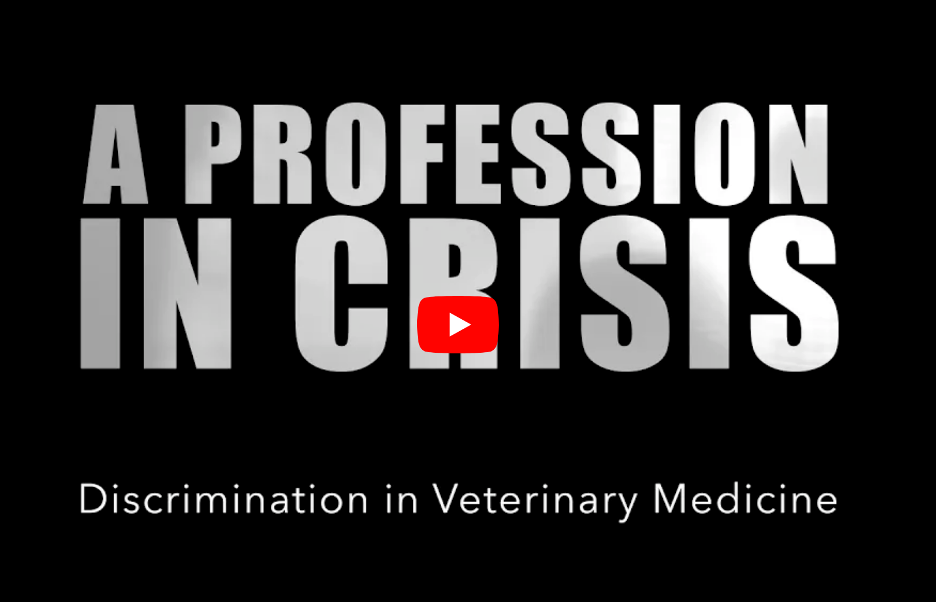
The Multicultural Veterinary Medical Association (MCVMA) has produced a powerful new video that vividly illustrates some of the diversity, equity and inclusion challenges facing the veterinary medical profession.
The video was part of a presentation MCVMA officials made during the recent meeting of the AVMA House of Delegates. The group developed a document that details some of the positions and requests they made during their presentation.
The organization is continuing to reach out for support from various areas of the veterinary medical community, according to Dr. Tina Tran, a faculty member at the University of Arizona College of Veterinary Medicine who is active with the MCVMA. For more information, visit https://www.wakeupvetmed.com
Inquiries can be forwarded to multiculturalvma@gmail.com.
Purdue University College of Veterinary Medicine’s Kevin Doerr Earns AAVMC’s 2020 Communications Excellence Award
 The communications program at the Purdue University College of Veterinary Medicine, led by Director of Communications Kevin Doerr, has been recognized with the American Association of Veterinary Medical Colleges’ (AAVMC) 2020 Communications Excellence Award.
The communications program at the Purdue University College of Veterinary Medicine, led by Director of Communications Kevin Doerr, has been recognized with the American Association of Veterinary Medical Colleges’ (AAVMC) 2020 Communications Excellence Award.
Judges praised Purdue’s program for overall excellence that advanced the college’s strategic outreach.
“Communications excellence is at the core of any successful university advancement program,” said AAVMC Chief Executive Officer Dr. Andrew T. Maccabe. “We congratulate our colleagues at Purdue University for earning this distinction and we are proud to acknowledge their exemplary scope of achievements and success.”
Purdue University carried out a major themed celebration of its sesquicentennial in 2019, as the veterinary medical college simultaneously marked its 60th anniversary with messaging and graphics centered on a theme of progress and innovation. The College used multiple platforms to increase its stature among internal constituents, campus community stakeholders, alumni, clients and the public.
The communications team significantly increased the college’s online and social media presence and, in collaboration with the Purdue News Service, distributed 45 news releases that garnered more than 2,300 media mentions and reached an estimated audience of 850 million.
The judging team consisted of communication professionals representing member organizations of the Federation of Associations of Schools of the Health Professions (FASHP) in Washington, D.C. Judges scored nominations from five competing schools using an empirical process that assessed criteria such as quality and scope of the program, leadership and innovation in program development, strategic orientation and other factors.
The award includes a $1,000 honorarium, a commemorative, and public recognition. The AAVMC Board of Directors established the Communications Excellence Award in 2013 to recognize the important role of communications in advancing academic veterinary medicine and the profession, inspire higher level of performance and foster collaboration among member institutions.
Amy Kruzich from The Iowa State University College of Veterinary Medicine Wins Scholarship Fundraising Award
 Ms. Amy Kruzich, executive director of development at the Iowa State University College of Veterinary Medicine, has been awarded the American Association of Veterinary Medical Colleges’ (AAVMC) 2020 Award for Fundraising Excellence in Student Scholarships.
Ms. Amy Kruzich, executive director of development at the Iowa State University College of Veterinary Medicine, has been awarded the American Association of Veterinary Medical Colleges’ (AAVMC) 2020 Award for Fundraising Excellence in Student Scholarships.
The Iowa State University College of Veterinary Medicine’s scholarship fundraising program was recognized by judges for its creativity, innovation, and substantial improvement.
Iowa State University is amidst a multi-year $1.5 billion capital campaign, which officially ends in June 2021. The veterinary college met its 2020 annual goal of $10 million a full six months ahead of schedule, with approximately 20 percent of that fundraising for student scholarships.
In the fall of 2019, the college distributed just over $1 million in scholarships and, under Kruzich’s leadership, they have set a goal to award $2 million in 2023, including a number of scholarships specifically designated for students from underrepresented backgrounds.
“Student scholarships are a critically important area, especially in the quest to make a veterinary medical education more inclusive,” said AAVMC Chief Executive Officer Dr. Andrew T. Maccabe. “We’re honored to congratulate Amy and her colleagues for earning this distinction and for the impact their work has on the cost and financing of earning a DVM degree.”
The award is not presented solely on the basis of the total amount of resources generated, or year-over-year increase. Judges consider criteria such as programmatic structure, new and innovative strategies, resources applied and other factors in making their decision.
The AAVMC Board of Directors created the award in 2018 to recognize exceptional performance and inspire higher levels of productivity in this area among member institutions.
The award includes a $1,000 honorarium, a commemorative, and public recognition.
NIAMRRE Becoming Established Part of Global AMR Effort
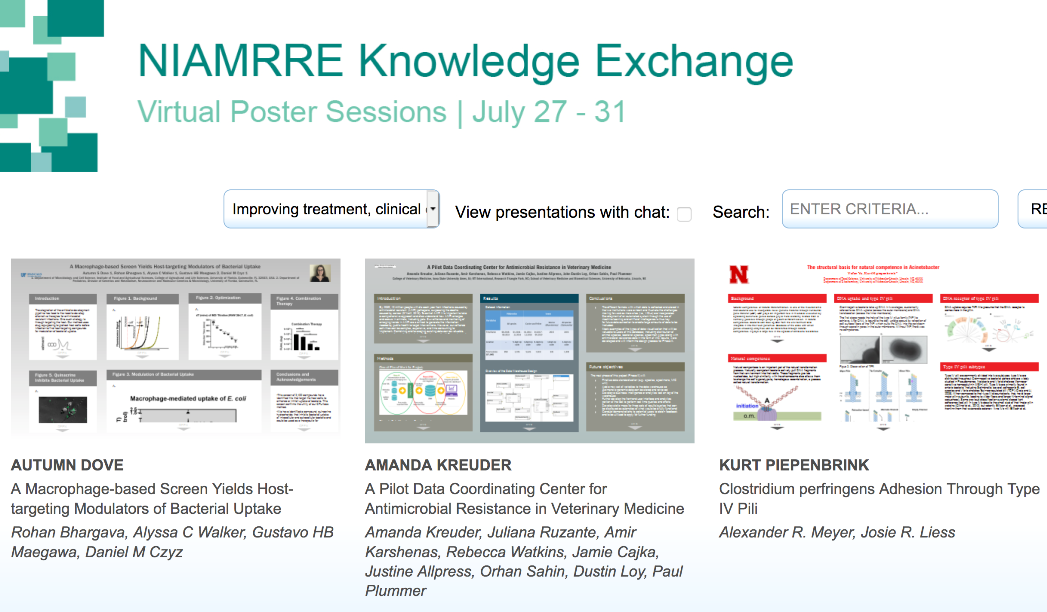
The National Institute of Antimicrobial Resistance Research and Education presented their NIAMRRE Knowledge Exchange: Virtual Poster Sessions from July 27th – 31st. Scientific posters representing six academic institutions focused on four sections were featured as part of the digital forum.
Based at Iowa State University, NIAMREE was founded as the result of a collaboration between the AAVMC and the Association of Public and land-grant Universities (APLU) in 2018.
Sections included in the Knowledge Exchange included:
- Systems approaches to manage antimicrobial resistance
- Reducing antimicrobial use by adapting precision agriculture approaches
- Promoting antimicrobial stewardship through integrated public outreach, extension and clinical training of health professionals
- Improving treatment, clinical decision making and diagnostics related to antimicrobial resistance
NIAMREE includes a consortium of different universities, including several AAVMC members and the University of Nebraska Medical Center.
NIAMREE has established itself as an important part of the global effort designed to mitigate the massive public health risks posed by antimicrobial resistance. They have met frequently with national and international organizations and governmental agencies.
The AAVMC and the APLU continue to assist NIAMREE with the development of federal funding. Currently, a $3 million appropriation is included in the FY 2021 House Agriculture Appropriations bill which directs USDA’s Animal & Plant Health Inspection Service to “work with a public private partnership” to create an AMR dashboard for livestock management, research, risk and stewardship, according to AAVMC governmental affairs director Kevin Cain.
Gene Editing in Food Animals Task Force Convenes for First Meeting
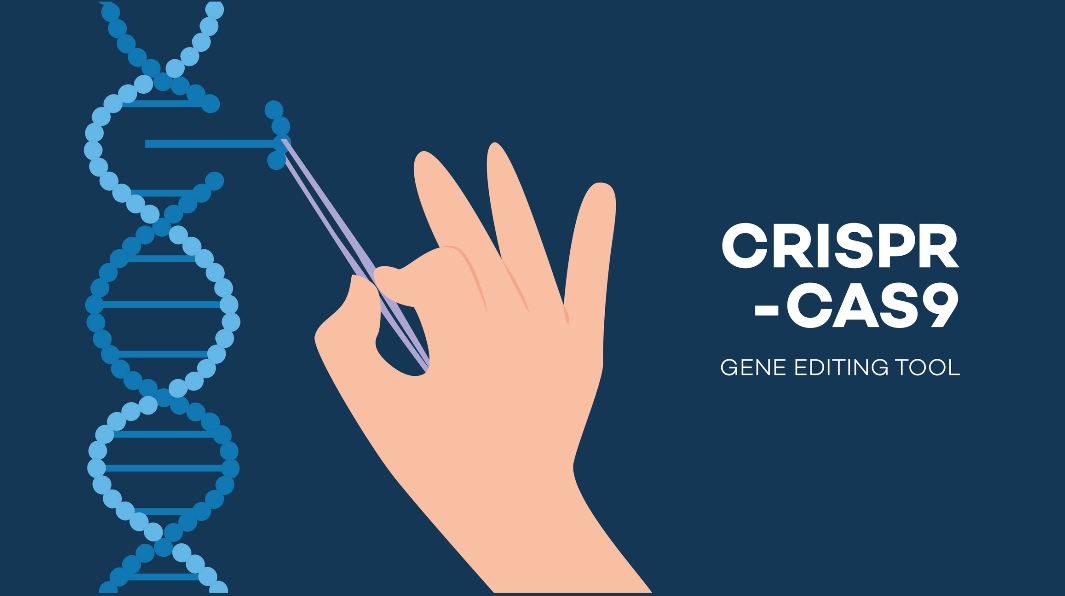
The 13-member Gene Editing in Food Animals Task Force held their first meeting on July 16.
The task force is a joint effort between the AAVMC and the Association of Public & Land-grant Universities (APLU). The goal is to develop recommendations that can improve federal regulatory oversight of how gene editing technology is used in animal agriculture.
Chaired by Dr. Noelle Cockett, a renowned geneticist and President of Utah State University, the 13-member task force includes scientific representatives from several AAVMC and APLU member organizations, as well as the Biotechnology Innovation Organization (BIO), the National Cattlemen’s Beef Association (NCBA) and an expert in animal welfare.
During the inaugural meeting, members shared opening comments and perspectives about the importance of the issue and the process ahead. The group plans to host three or four additional meetings and develop their recommendations in time for the new Congress and potential new administration.
Future meetings are expected to include presentations from representatives of the Food & Drug Administration and the USDA.
The AAVMC has developed a portal on AAVMC Connect, which is digital community of interest to support communications and group-work.
Interprofessional Education Collaborative Faculty Development Institute Goes Virtual

Like so many other meetings and conferences these days, the Interprofessional Education Collaborative’s (IPEC) annual Faculty Development Institute will be presented virtually.
Originally planned for December 7-9, 2020, the event will now be held online on December 1, 3, 8, and 10, 2020. Online sessions will allow for live interaction, and will be available on-demand in the weeks following the Institute. The virtual IPEC Institute will still address the theme of building a framework for IPE for collaborative practice.
Their goal is to offer the interprofessional education (IPE) community the opportunity to engage in educational exchanges and share best practices while protecting the safety, health, and well-being of all Institute participants.
Early bird registration opened on August 5th. Further details and a tentative agenda are pending.
Find more information via these FAQs, the IPEC website, or contact IPEC Associate Director Shelley McKearney at smckearney@aacnnursing.org.
VetCAN Schedules Small Animal, Large Animal Virtual Career Fairs

The AAVMC’s Veterinary Career Advisor Network (VetCAN) will present two virtual career fairs individually focused on small animal and large animal veterinary medical career opportunities in September 2020 and in January 2021.
VetCAN officials are currently recruiting prospective employers for the DVM Virtual Career Fair – Small Animal Predominant, which will be presented on September 26 from 1-4 p.m. EST.
The DVM Virtual Career Fair – Large Animal Predominant will be presented on January 23, 2021 from 1 – 4 p.m. EST.
The upcoming events continue a series of successful on line career fairs that VetCAN has recently begun presenting.
The Veterinary Career Advisor Network (VetCAN) was founded in 2014 as a resource and network for individuals working with veterinary students and alumni in the area of career and professional development.
For more information, contact Katelyn Jerles at jerles@ufl.edu.
In the News
Behind The Scenes With Dogs Being Trained To Detect COVID-19
NBC Nightly News
Researchers Develop Software to Find Drug-Resistant Bacteria
Science Daily
Kansas State University Signs Research Agreement for COVID-19 Vaccine Candidate
Kansas State
Texas A&M Veterinary Lab Hits Red Tape Trying To Do Human Coronavirus Testing
KERA News
K-State, South Koreans Developing African Swine Fever Vaccine
New York Ag Connection
Can Dogs be Used to Screen for COVID-19?
dvm360
New Study Confirms SARS-CoV-2 Not Transmitted by Mosquitos
Technology Networks
UPenn Vet School Navigating Cytokine Storms
USAgnet
COVID-19 Puts Brakes on Mississippi Catfish Sales
Daily Journal
Dentistry Training May be Required in U.S. Veterinary Schools
VIN News
Researchers Develop Software to Find Drug-Resistant Bacteria
Science Daily
It’s Time to Talk About Race in the Equine Veterinary Profession
The Horse
$1M Donation Boosts Training for Minimally Invasive Procedures
Veterinary Practice News
Blue-green Algae Can be Deadly for Livestock
Topeka Capital-Journal
Study Identifies Possible Therapeutic Treatment for COVID-19
Medical News
New Texas Tech Vet School Preparing for Opening Next Year
KFDA-10
Researchers Receive $1.3 Million Grant to Develop Better Treatments for Alzheimer’s Disease
Medical News
CSU Researchers Develop At-Home Coronavirus Test With Quick Results
4CBS Denver
Veterinary Colleges Committed to Anti-racism, say Black Lives Matter
JAVMA News
Easing Anxiety Top-ranking Task for PTSD Service Dogs
Veterinary Practice News
COVID-19: Double Trouble for an International Veterinary Student
dvm360
Two LSU Doctors Working on Coronavirus Saliva Tests
KPEL
Scientists Uncover Biological Signatures of the Worst Covid-19 Cases
New York Times
Euthanasia at an Epicenter of the Pandemic
News
Texas A&M Researchers Identify First COVID-19 Positive House Cats In Texas
21 CBS
From Our Members
Kansas State University Signs Research Agreement for COVID-19 Vaccine Candidate
Kansas State
Washington State University to Begin Human Testing for COVID‑19
Washington State
Bats and COVID
University of Pennsylvania
Purdue Team Gets $1 Million to Develop Rapid Sensor Technology for Cattle Disease
Purdue University
LSU SVM Alumnus José Arce Named President-elect of the American Veterinary Medical Association
Louisiana State University
Getting Gene Therapy to the Brain
University of Pennsylvania
Triumphing over Tetanus
Tufts University
Giving Women in Veterinary Medicine ‘True Role Models’
Washington State University
Veterinary Euthanasia Course Wins National Award
Cornell University
People in Motion
Dr. Stacy (Thacker) Anderson was named as Dean of Lincoln Memorial University’s College of Veterinary Medicine, effective Aug. 4, 2020.
Dr. Dori Borjesson began her position as Dean at the Washington State University College of Veterinary Medicine, replacing Interim Dean Robert Mealey.
Dr. Leslie Sprunger, Associate Dean for Student and Academic Affairs, replaced William Scott Dernell at the Washington State University College of Veterinary Medicine.
Dr. James Roush, Interim Associate Dean for Academic Programs and Student Affairs, replaced Peggy Schmidt at the Kansas State University College of Veterinary Medicine.
Dr. Giselle Hosgood, Interim Principal at Murdoch University, replaced Cristy Secombe as Academic Affairs representative.
Dr. Bradley Blitvich, Interim Assistant Dean of Graduate Studies and Research, replaced Cathy Miller at the Iowa State University College of Veterinary Medicine.
Dr. David Anderson became Associate Dean for Research and Graduate Studies at the University of Tennessee College of Veterinary Medicine.
Dr. Stephen Kania became Assistant Dean of Research and Graduate Studies at the University of Tennessee College of Veterinary Medicine.
Dr. Bruce Whitlaw, Temporary Director of Research, replaced Eleanor Riley at University of Edinburgh.
“Like” us on Facebook or follow us on Twitter:




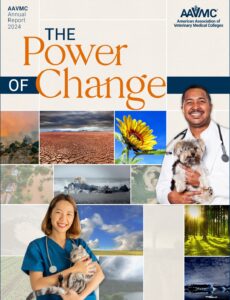
SHARE